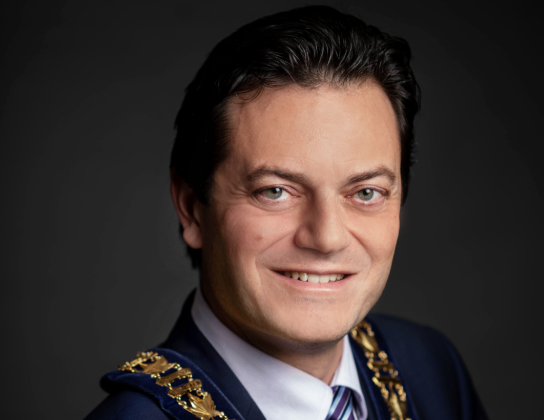Barrie Mayor Jeff Lehman says he understands the concerns of a potential second wave related to COVID-19, but also says the city is much more prepared now than it was six months ago when the World Health Organization declared a worldwide pandemic March 11.
“I think the learnings of the last six months help us all prepare for a second wave,” Lehman told BarrieToday. “Before COVID occurred, there were pandemic plans the health unit had. It's something that emergency co-ordinators think about, but there has obviously been a lot of learning as we go."
And a lot of that can be learning on the fly.
“Every virus is different and what we knew about COVID-19 in the first few weeks of this crisis is nothing compared to what we know now," the mayor said.
Positive cases in Ontario have seen an increase over the last couple of weeks, as more businesses and services open up, but there are also some new concerns about how the numbers will look with schools having just begun this week, too.
As of Friday, Barrie has had 247 lab-confirmed cases and 210 recoveries. There have also been 14 deaths, the majority of which were linked to an outbreak at Owen Hill Care Community in April and May.
From the city’s viewpoint, Lehman says a second wave can be better handled with the ability to provide services offsite, which the municipality has learned to do in the last few months.
“We have the experience now, after six months, to operate in different ways that keep people safe," he said. "We could bring that experience to a second wave in terms of what city facilities might have to close and what can stay open.
“The other thing that's changed is we’ve built a lot of capacity to respond to the need to deliver things differently, from social services like the food bank and the homeless shelters to city services themselves," Lehman added.
The mayor says his concern isn't necessarily the possibility of a second wave, but citizens being able to handle such a circumstance and the financial strain it can bring.
“It would depend on everyone's willingness to participate in what we need to do," Lehman said. "I believe everyone is tired, (both) in the public and in government, because we’ve all had to adapt our lives for six months. On another level, I think a second wave will be tougher because, if you’re a business and you had to close for a few months, that's one thing; if you end up losing most of a year, that's a much more severe impact.”
When businesses and services in Barrie started shutting down in March, much of the concern was how the city would survive financially. While the pandemic isn't over, Lehman says help from other levels of government has eased the financial pressure.
“Finances were a very serious concern prior to the announcement of the safe restart funding. It's still a concern, but it's now less of a concern,” Lehman said. “The money that the federal and provincial government announced for Barrie that was $6 million in operating costs and close to $3 million in transit, that's Phase 1 of two, and we’re still tallying up some of those costs and we’re still incurring some of those costs.
"So I think at the end of our fiscal year, which is the end of the calendar year, there's going to be some adding up of the costs and hopefully that Phase 2 funding will help cover it," he added.
Just two or three months ago, Lehman says the city was looking at everything and thinking that “without a bailout we’re looking at serious service cuts or a need for tax increases, but I think the safe restart funding has helped a lot.”
That funding will not cover the total fiscal shortfall, said Lehman, but his understanding is there may also be more financial assistance on the way.


